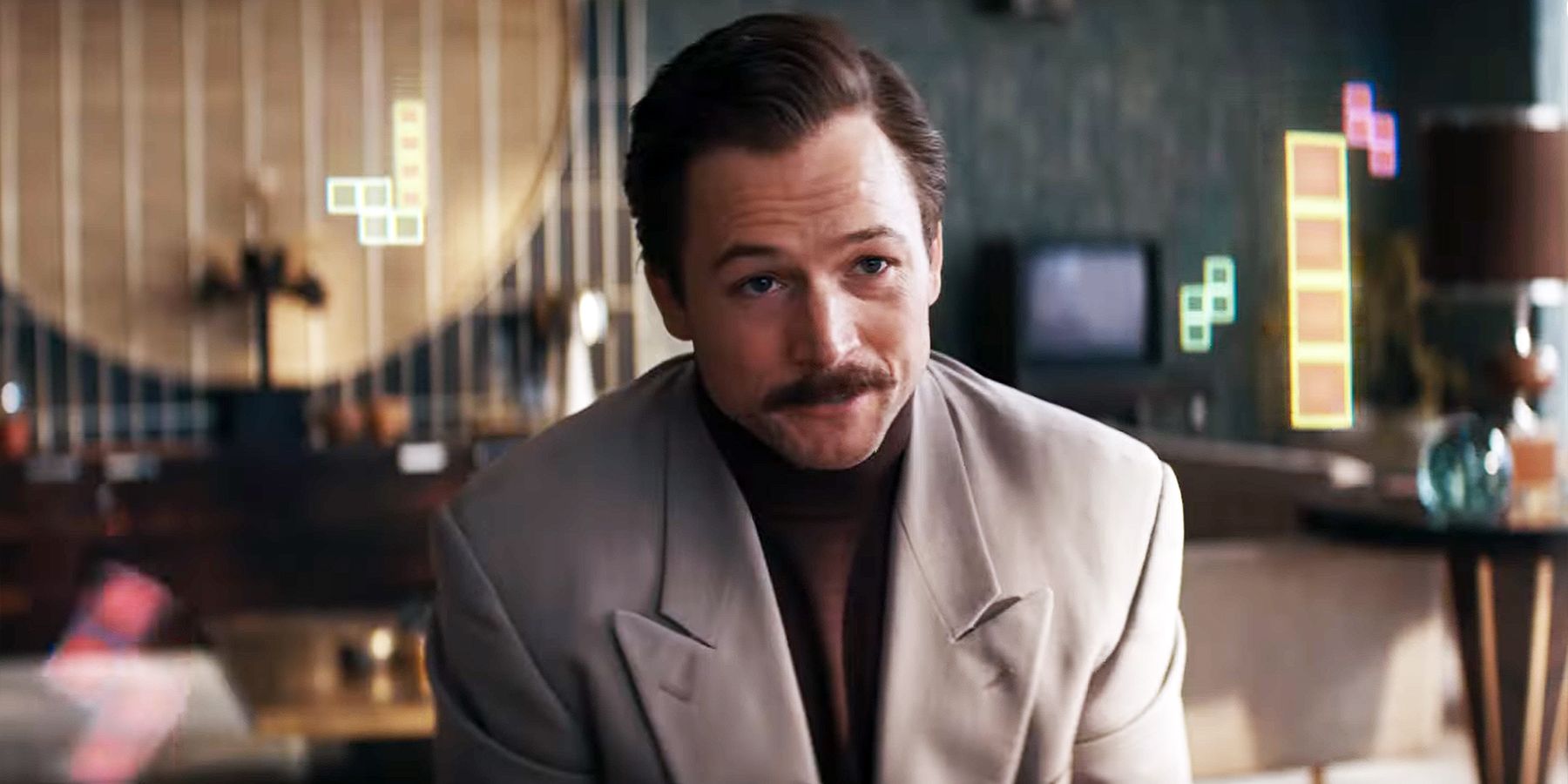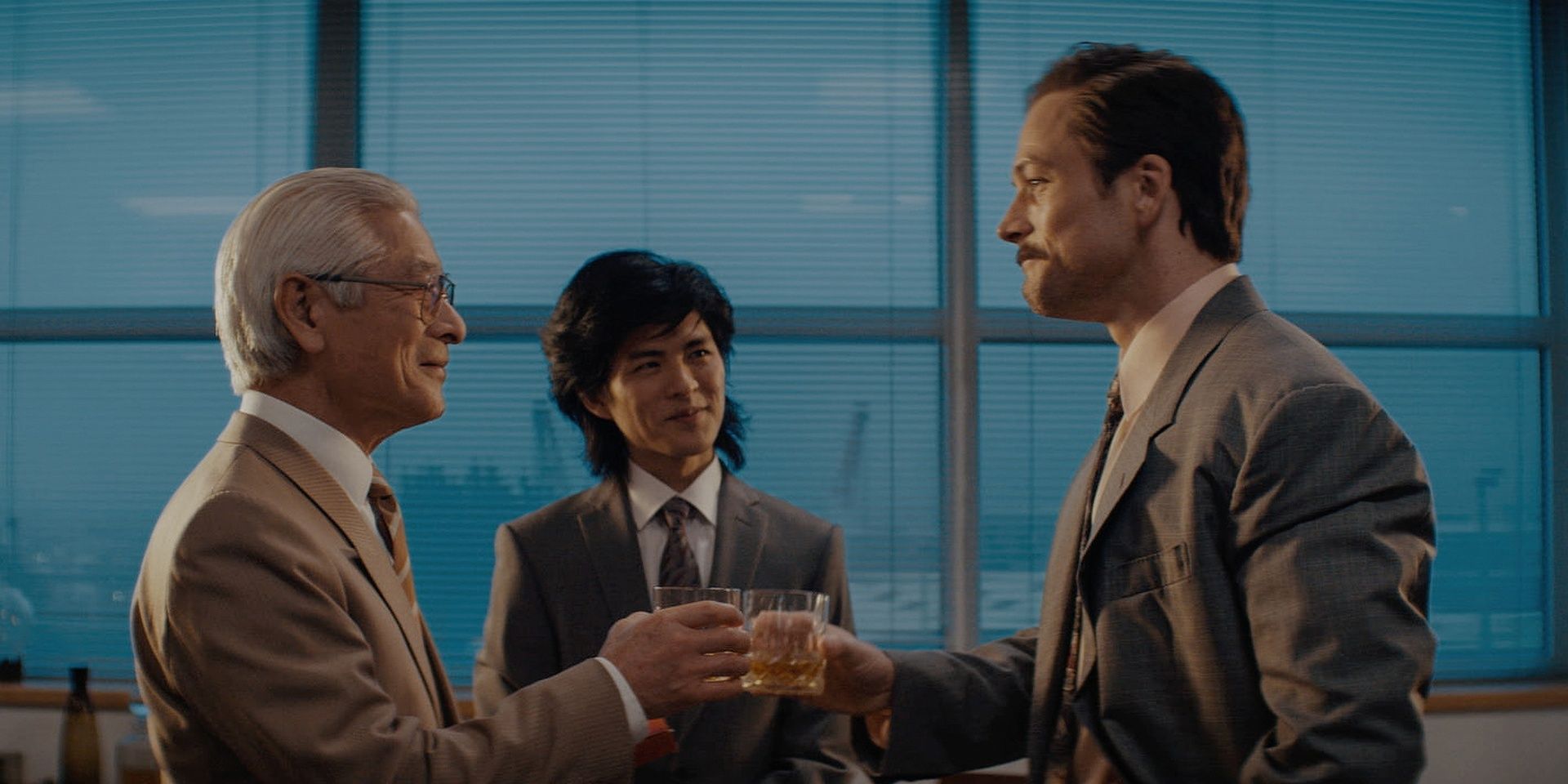Video games have gradually become culturally ubiquitous enough that everyone can name two or three iconic titles. However, only a decade or two ago, a substantial chunk of the population would've known Tetris and only Tetris. The game was groundbreaking when it premiered, but it's managed to remain relevant in one form or another into the modern day. The film is finally here, and it looks surprisingly solid.
The long moral arc of video game movies has held Tetris above the fans' heads like a grim and terrible Z-shaped piece descending from on high. Veterans of previous bad video game adaptations imagined the worst; quipping cubes on a kid-friendly quest to clear lines before the pop remix of the classic theme song ends. Instead, they're looking at a sincere drama about the long and difficult process to secure the game's release.
Tetris will chronicle the extensive legal battle that preceded the world-changing 1989 release of the titular puzzle game on the Nintendo Game Boy. In the mid-2010s, Threshold Entertainment began threatening the production of an epic sci-fi adventure film based on the property, but that concept seems to have been scrapped. Instead, Apple Studios has developed a historical biopic of Henk Rogers, the publisher who got Tetris to the place of prominence it enjoys to this day. It's a much more upbeat take on The Social Network with a far more enjoyable end product. Though the film will likely take a few creative liberties with the tale, there are a lot of interesting personal and political implications to the game about falling blocks.
In 1984, Alexey Pajitnov was a humble 31-year-old researcher working for the Soviet Academy of Sciences. In his spare time, he was fixated on a game he vaguely recalled from his childhood. He imagined a game in which randomized shapes would fall from the top of the screen, and the player would have to set them in the correct place to clear lines. He called it Tetris, a portmanteau of tetra, a Greek prefix meaning "four," and tennis, Pajitnov's favorite sport. Despite the game being built out of brackets and spaces, everyone who tried it quickly became addicted, leading Tetris to spread fast across Moscow. Pajitnov wanted to distribute his game beyond his local area, but he was barred from selling anything he made as a researcher in the Soviet Union. Enter international software salesman Robert Stein, the first foreigner to take a chance on Tetris.
Stein worked for Andromeda Software, a British company that appears to have dissolved shortly after Tetris went worldwide. Stein went to CES in 1987 and talked to anyone who would listen about his great new game. He got a lot of pushback from American companies who were certain that no Soviet game could ever succeed worldwide. Stein sold the rights to the game to Spectrum HoloByte in the US and Mirrorsoft in Europe. Those two companies ported the game across every available system at the time, but a problem quickly emerged. Stein didn't actually own the rights to the game he'd just sold worldwide. A tense battle ensued, ending with the Soviet Elorg taking most of the profits from the licensing agreements. Pajitnov didn't earn a dime for his work and went uncredited. Things were only starting to pick up as Tetris met the producer that would make it a household name.
Henk Rogers founded Bullet-Proof Software in 1983. In the late-80s, Rogers was looking for a new title to sell to the Japanese market. He discovered Tetris around the same time as everyone else, but he was lucky enough to be friends with Nintendo president Hiroshi Yamauchi, and that bond granted him a bit of inside information. Nintendo was working on its first handheld console, the Game Boy, and Rogers knew that Tetris would be the ideal title to move that charming little gray rectangle. The rights were, at this point, pulled in a dozen different directions. Luckily, Rogers thought fast and made another friend, Alexey Pajitnov. Rogers managed to draw attention to Stein's bizarre dealings, causing Elorg to shred their initial contract and hand the rights over to Nintendo. Multiple legal battles followed, but the story was set in stone. Tetris (1989) sold 43,000,000 copies and swiftly became the flagship title of the handheld console that would define a generation.
In 1996, as previously agreed upon by all parties, all rights to Tetris finally reverted to its rightful owner, Alexey Pajitnov. Pajitnov and his pal Rogers founded Tetris Holding and The Tetris Company, which handles the rights in all cases. Through a weird series of trades, EA does own the rights to mobile versions of the game, but Pajitnov is the father of Tetris once again. The upcoming film will tell a very interesting story in a new way. The long path of a simple game through a series of handshake deals and legal struggles into the homes of every person on Earth will make a pretty good pitch for a video game movie.



